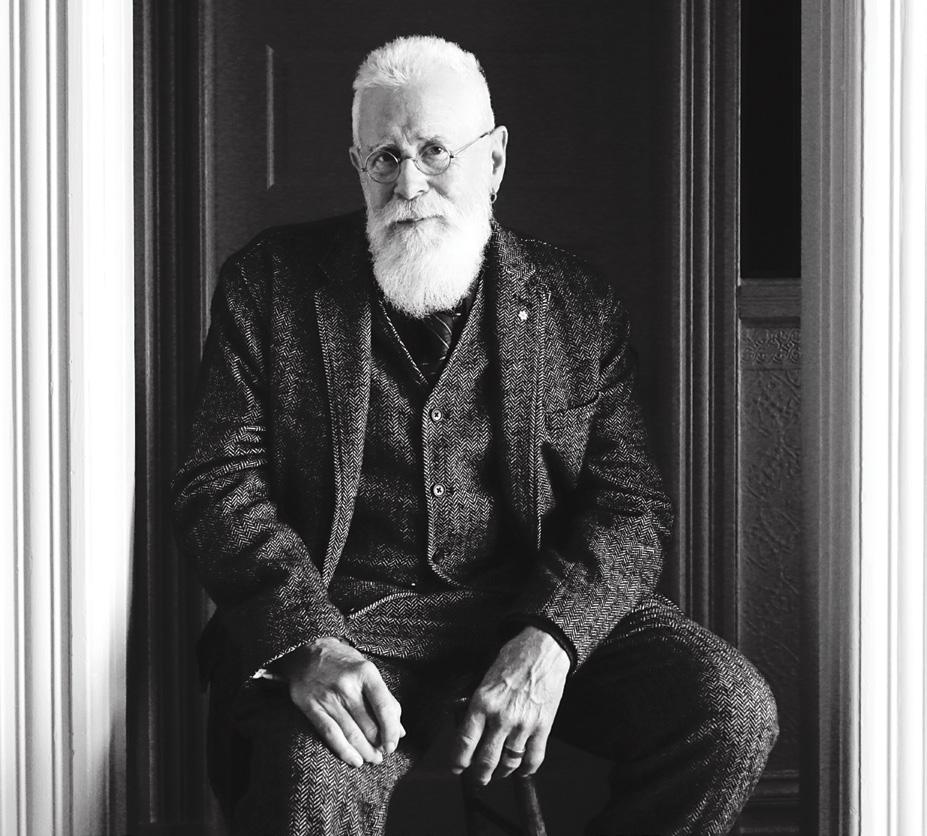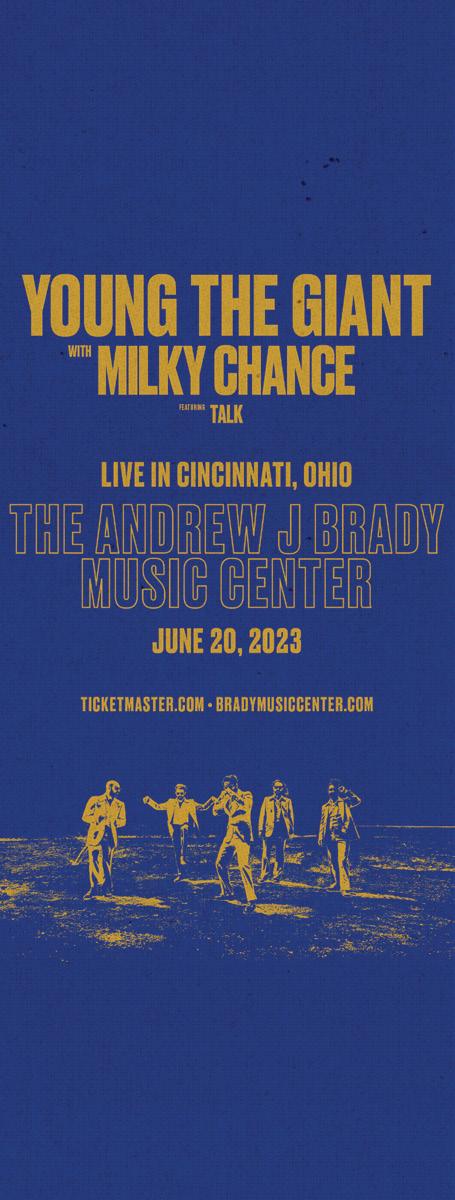
4 minute read
MUSIC Love in a Dangerous Time
Bruce Cockburn’s latest album, O Sun O Moon, takes listeners on an equally hopeful and honest quest.
BY STEVEN ROSEN
Over the course of his 53-year career as a solo recording artist, Bruce Cockburn has won admiration for the finely crafted imagery and poetically descriptive details of his personal and political songs, the subtly emotional quality of his vocals and the virtuosity of his guitar playing. He’ll be making a comparatively rare Cincinnati appearance at Ludlow Garage on June 16; Dar Williams is opening the show.
Granted, his fame is greater in his native Canada than in the U.S. There, he’s regarded on equal footing with fellow Canadians Leonard Cohen and Gordon Lightfoot as a major singersongwriter. (Cockburn has lived in San
Francisco since 2009). But he has had an appreciative U.S. following ever since he scored a hit single in 1979 with the gently catchy “Wondering Where the Lions Are.” It may be, he has said, the only top 40 song ever to contain the word “petroglyphs.”
His other songs — particularly “Lovers in a Dangerous Time,” “If I Had a Rocket Launcher,” “Pacing the Cage” and “Waiting for a Miracle” — have become recognized here through either album rock airplay of his own versions or covers by such artists as Jerry Garcia, Shawn Colvin, Barenaked Ladies, Judy Collins and more. Though written earlier, “Lovers in a Dangerous Time” and “Pacing the Cage” drew increased attention during the worst of the pandemic.
It really is a distinguished, accomplished career in retrospect. But at age 78, he’s not looking backward. On his new record O Sun O Moon, his 38th studio album, he begins with a bluesy, soulful rocker built around this memorable refrain: “Time takes its toll/But in my soul/I’m on a roll.”
It seems a pretty upbeat notion, driven along by a hot electric guitar solo by Colin Linden, who also produced the record. So CityBeat’s first question to Cockburn during a phone interview is if the song is meant as a motivational statement for the audience that has aged along with him.
At first he laughs, then addresses the inquiry with the kind of serious introspection that has been a constant in his career. “I think I’m talking to myself as much as to you,” he says. “But that’s all right if they (his audience) think that. We all hope people will pay attention to the album.”
“On a Roll” is a good example of how his songs can make you think and, for that matter, how much thought goes into the songwriting. Positive as that refrain seems, the verses aren’t morale boosters. An example: “Howl of anger, howl of grief/here comes the heat with no relief/social behavior/beyond belief/throw those punches, drop that ball/commit to nothing, excuse it all/ here comes the future/here comes the fall.”
The song’s seeming positivity relates to Cockburn’s searching, questioning, non-violent view of Christianity, to which he’s long been devoted. “Looking around the world, it’s in a mess and that’s nothing new,” he explains. “In the Trump era in America and then post-Trump, the notion of bad manners sort of vanished, along with the notion of good manners. So there’s a reference to that and all these other things going on — this external chaos.
“But inside, well, I’m getting older — that’s time taking its toll,” Cockburn continues. “But at the same time, I feel like I’m getting closer to the relationship with the divine that I want and hope for. I can’t really define that relationship very well for you, but that’s been a theme of mine from the get-go, so it’s a hopeful statement on a personal level in spite of all the crap going on around us.
“It’s probably not for everybody, but I don’t think I’m alone on this,” he explains about his religious belief. “As the horizon approaches, you start thinking about what’s on the other side. I don’t want to meet God and not recognize him. That matters to me. That’s the driving principle behind my ongoing efforts to get that relationship in good shape.”
(Cockburn expresses those thoughts even more directly on the new album’s strong closing song, “When You
Arrive).”
Born in Ottawa, he took an early interest in music, especially jazz, and went on to study composition at Boston’s Berklee School of Music in the mid-1960s before dropping out. He then found his way into rock and folk.
As his career and following developed, so, too, did his concern with war and economic inequities. One of his most memorable and controversial songs, 1984’s “If I Had a Rocket Launcher,” came about after Cockburn visited a Mexican refugee camp for Guatemalans fleeing the brutality of their country’s military government.
The song shocked fans who regarded Cockburn as firmly non-violent; others saw it as a rallying call to arms against government-sponsored violence.
It’s a song Cockburn still finds a need to explain today — it’s about him being glad he didn’t have a rocket launcher handy. “The word ‘if’ gets overlooked a lot when people think about that song,” he says. “One of the things I was trying to say is that the enemy — in this case, the Guatemalan military — was inflicting horrendous abuses on its own citizens and forfeiting any claim to humanity by their actions. I was outraged by those things, and my outrage was motivating the song. I don’t think it was an appropriate response really, but I wanted to share with my peers how easy it is to get into that state of mind.”
When Cockburn includes the word “love” in his songs — and he does so on four different O Sun O Moon tracks — he doesn’t do it casually or as a songwriting cliché. His vision of love somewhat parallels his vision of beauty in life. On one of the new album’s loveliest ballads, the quietly hymnic “Us All,” he sings, “I pray we not fear to love/I pray we be free of judgment and shame/Open the vein/let kindness rain/rein/O’er us all.”
Bruce Cockburn plays Ludlow Garage at 8:30 p.m. June 16. Info: ludlowgaragecincinnati.com.











